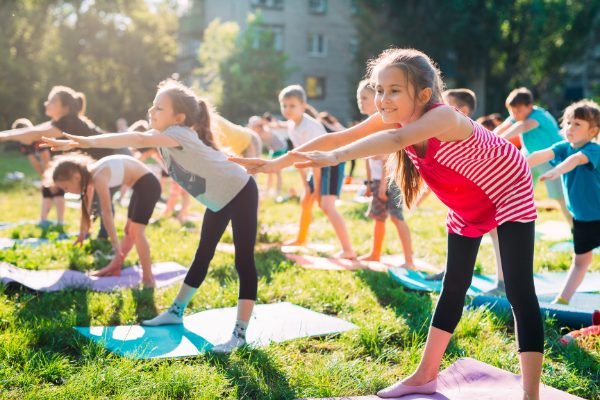Introduction: As we journey through life, our bodies and minds undergo profound changes, especially as we age. It’s during these later stages that prioritizing our health becomes increasingly important. Among the multitude of options available to promote well-being, one timeless practice stands out – yoga. With its gentle yet powerful techniques, yoga offers a plethora of benefits uniquely suited to the needs of older adults.
- Enhancing Flexibility and Mobility: One of the hallmark benefits of yoga is its ability to improve flexibility and mobility. As we age, our joints may stiffen, and muscles may weaken, leading to decreased range of motion and increased risk of injury. Through a series of gentle stretches and poses, yoga helps to lubricate the joints, loosen tight muscles, and improve overall flexibility, making everyday movements easier and more comfortable.
- Strengthening Muscles and Bones: Maintaining muscle strength and bone density is crucial for preventing falls and fractures, which become more prevalent with age. Yoga, with its focus on body-weight-bearing poses and resistance exercises, provides a natural way to build and maintain muscle mass and bone strength. Poses like Warrior II, Tree Pose, and Chair Pose engage various muscle groups, helping to strengthen them over time.
- Promoting Balance and Coordination: Balance and coordination tend to decline as we age, increasing the risk of falls and related injuries. Yoga poses that challenge balance, such as Tree Pose, Eagle Pose, and Half Moon Pose, help to improve proprioception and spatial awareness, thereby enhancing overall balance and coordination. These improvements not only reduce the risk of falls but also contribute to a greater sense of confidence and independence.
- Managing Stress and Improving Mental Well-being: Old age often comes with its own set of stressors, including health concerns, loss of loved ones, and changes in lifestyle. Yoga offers powerful tools for managing stress and promoting mental well-being. Through the practice of mindful breathing, meditation, and relaxation techniques, yoga helps to calm the mind, reduce anxiety, and cultivate a greater sense of inner peace and resilience.
- Fostering Social Connection: Participating in yoga classes provides older adults with an opportunity to connect with like-minded individuals in a supportive and welcoming environment. Whether practicing gentle chair yoga or more dynamic flow sequences, the sense of community and camaraderie that develops in a yoga class can have profound positive effects on mental and emotional health, combating feelings of isolation and loneliness.
Conclusion: In conclusion, yoga is a valuable and accessible practice that holds immense benefits for older adults. From improving flexibility and strength to enhancing mental well-being and fostering social connection, yoga offers a holistic approach to healthy aging. By incorporating yoga into their lives, older adults can experience greater vitality, resilience, and overall quality of life, allowing them to age gracefully and joyfully.


